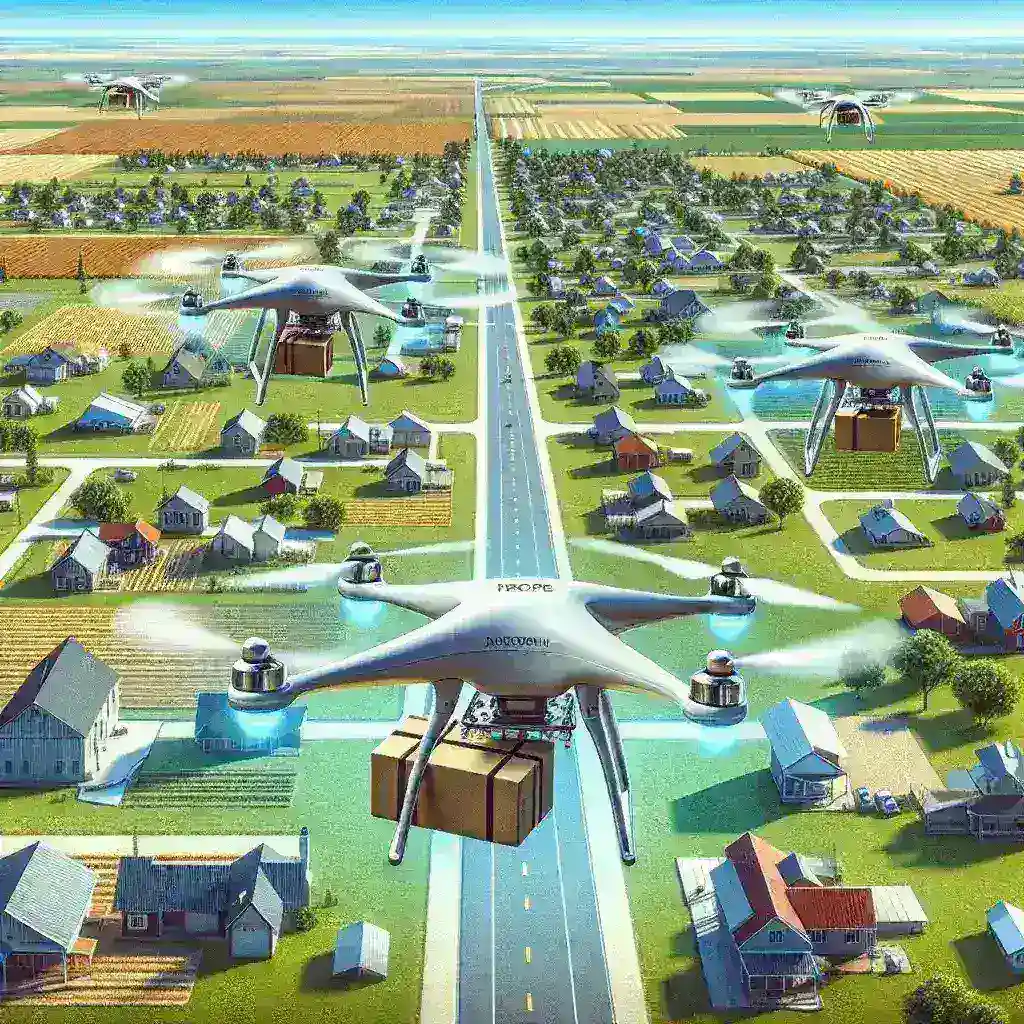Introduction
In an era where technology continuously reshapes the landscape of logistics and delivery, UPS is at the forefront of innovation with its ambitious initiative to test AI-powered drone resupply networks in rural towns across the United States. This cutting-edge approach aims to enhance delivery efficiency, reduce costs, and bridge the connectivity gap in areas often overlooked by traditional delivery services.
The Rise of Drone Technology in Logistics
Over the past decade, drones have transcended their initial recreational use and have become a vital tool in various industries, particularly logistics. As urban centers become increasingly congested, the need for efficient delivery systems has prompted companies like UPS to explore alternative methods. Drones offer the potential for:
- Speed: Capable of bypassing traffic and obstacles, drones can deliver packages within minutes.
- Cost Efficiency: Reducing operational costs associated with traditional delivery methods.
- Accessibility: Reaching remote and rural areas where ground transportation may be limited.
UPS’s Vision for Rural Delivery
UPS has long been committed to enhancing delivery services, especially in underserved regions. The company recognizes that rural areas often suffer from delayed deliveries and limited access to essential goods. The pilot program aims to leverage AI and drone technology to address these challenges, ensuring timely resupply of essential items such as medical supplies, groceries, and more.
How AI Powers the Drone Network
At the core of UPS’s drone initiative lies artificial intelligence, which plays a crucial role in optimizing delivery routes, managing air traffic, and ensuring safety. Key features include:
- Route Optimization: AI algorithms analyze real-time data to determine the most efficient flight paths, minimizing delivery times.
- Autonomous Navigation: Drones equipped with AI can navigate complex environments, avoiding obstacles and ensuring compliance with airspace regulations.
- Predictive Analytics: By anticipating demand and delivery patterns, AI helps in adjusting supply strategies in real-time.
Testing Phase: Pilot Programs in Action
UPS has initiated pilot programs in select rural towns to gather data and refine its drone delivery systems. These tests involve:
- Community Engagement: Collaborating with local authorities and residents to ensure the program meets community needs.
- Safety Protocols: Implementing strict safety measures to protect both people and property during drone operations.
- Feedback Mechanisms: Collecting data from users to continuously improve the service and address any concerns.
Potential Benefits of AI-Powered Drones
The introduction of AI-driven drone networks promises several advantages for rural communities:
- Increased Access: Regular drone deliveries can improve access to essential goods, especially in emergencies.
- Economic Growth: Enhanced logistics can attract businesses to rural areas, stimulating local economies.
- Environmental Impact: Drones can significantly reduce the carbon footprint associated with traditional delivery vehicles.
Challenges Ahead
Despite the potential benefits, UPS faces several challenges in implementing drone networks:
- Regulatory Hurdles: Compliance with FAA regulations and local laws governing drone operations.
- Public Perception: Addressing concerns about safety, privacy, and noise associated with drone deliveries.
- Technical Limitations: Ensuring drones can operate effectively in various weather conditions and terrains.
Looking Towards the Future
The future of AI-powered drone resupply networks holds immense potential. As UPS gathers insights from the pilot programs, the company aims to expand its operations, making drone deliveries a staple in logistics. Experts predict that:
- Wider Adoption: As technology advances, more companies will adopt drone logistics as a standard practice.
- Integration with Smart Cities: Drones may become integral components of smart city initiatives, enhancing overall urban infrastructure.
- Job Creation: New roles will emerge in drone maintenance, operation, and regulatory compliance, contributing to workforce development.
Conclusion
UPS’s testing of AI-powered rural drone resupply networks signifies a transformative shift in logistics, particularly for underserved communities. By harnessing the power of technology, UPS is not only improving delivery systems but also fostering economic growth and accessibility in rural areas. As the trials progress, the logistics industry will be closely watching the outcomes, paving the way for a future where drone deliveries become commonplace.

Leave a Reply